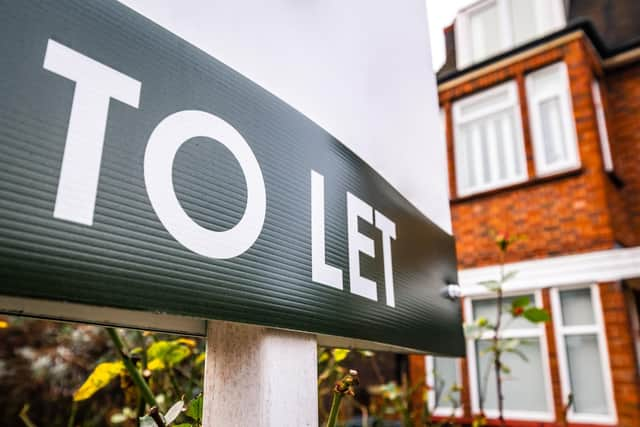Freezing rents will only make the situation worse – David Alexander


Scottish Minister for Zero Carbon Buildings, Active Travel and Tenants’ Rights Patrick Harvie said that this policy was needed to help people during the cost-of-living crisis and that this move would directly benefit tenants.
Mr Harvie also railed against the “vested interests” who opposed this legislation. The “vested interests” that include Scottish councils (including those run by the SNP), Housing Associations, Scottish Land and Estates, Universities, construction companies, build to rent investors, landlord organisations, letting agents as well as individual and corporate landlords. These individuals and organisations have all warned that this type of legislation has never worked anywhere in the world and that the outcome of such policies is fewer available properties, higher rents, and a shrinking of the rental market.
Advertisement
Hide AdAdvertisement
Hide AdAcross the world where similar policies have been implemented the result is always worse for the tenant. In Stockholm it has resulted in eleven year waiting lists, higher rents, and illegal sub-letting; in San Francisco it produced fewer rental properties, poorer housing stock, and increased rents; in Berlin the legislation had to be quickly reversed as it reduced the market by 60% and was subsequently deemed to be illegal and resulted in the largest increase in rent prices in the whole of Germany.


The noted left wing Swedish economist Assar Lindbeck famously stated that: “rent control appears to be the most efficient technique presently known to destroy a city—except for bombing.”
Scottish politicians seem to have been genuinely shocked to find Housing Associations will not be building more homes and will have difficulty maintaining their existing stock. Or the recent intervention by Labour peer Lord Willie Haughey, who had plans to invest £1bn in 11,000 affordable homes to rent in Glasgow. This development has been shelved with the peer stating: “Patrick Harvie will go down in history as the man who stopped investment and added to the calamitous lack of housing that we have in Scotland.”
The enormous build-to-rent developments worth over £3.4bn in Scotland have also been paused while investors wait to see whether this policy will be extended beyond its initial six-month period.
The further concern is that this is a policy specifically developed in response to rent rises in Edinburgh and Glasgow but is being applied across the whole of Scotland. The Scottish Governments’ own consultation paper showed that average rents for two-bed properties in Scotland between 2010 and 2021 had risen by 25.1% with inflation increasing by 24.3% over the same period.
Only four areas of Scotland (Lothian; Greater Glasgow; Fife and Forth Valley) had rent increases higher than inflation with Lothian the highest on 41.7%. While this is 17.2% above inflation it is over an eleven-year period making the average annual increase just 1.56%.
Interestingly the Scottish government data only monitors rent prices for properties new to the market rather than increases for long term tenants which will be much lower, so their data is skewed to make it seem higher. Existing rentals are unlikely to increase by as much as new rentals.
This policy could not have happened at a worse time for the rented sector in Scotland. Demand for homes in the private rented sector is at an all-time high. We have tens of thousands of viewing requests coming into our system monthly, students are being asked to sleep on the floors of common rooms, and social housing waiting lists are at record levels of over 130,000 people.
Advertisement
Hide AdAdvertisement
Hide AdThere is undoubtedly a problem with renting in Scotland, but it is one of supply and demand.
Freezing rents will only make the situation worse as tenants will find it harder to get accommodation, they will wait longer to get a home, and will pay more in rent if they do find somewhere. This is a lose-lose situation for the tenants and Mr Harvie seems deaf to the very real concerns that are being outlined by “vested interests”.
David Alexander is CEO of DJ Alexander Scotland Ltd
Comments
Want to join the conversation? Please or to comment on this article.